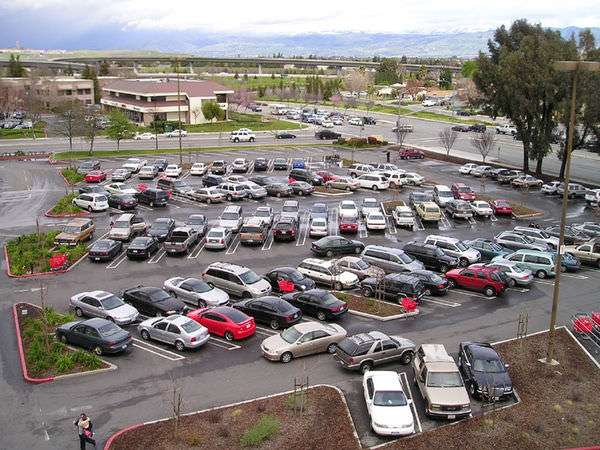Seattle Seizes Private Parking Lot to Build New Parking Lot

Citing the need for more public parking, the City Council of Seattle made a unanimous decision this week to force a 103-year-old woman to sell a plot of land that is already a parking lot.
The Puget Sound Business Journal argues that the situation seems like a boondoggle. There is contradictory information that officials have not clarified about whether the city intends to turn Myrtle Woldson's 134-stall parking lot into a multi-level garage or if they simply want seize the lot and operate it themslves:
"It makes no fiscal sense to me to have the city condemn a parking lot to make more parking," said Gary Beck, president of Republic Parking Northwest, which operates Woldson's lot.
[…]
City Council spokeswoman Dana Robinson Slote said that Seattle doesn't want to build anything on Woldson's lot and plans to keep it a surface parking lot "for the foreseeable future."
That contradicts city and state documents that call for building structured parking along the central waterfront, including specifically on Woldson's lot. The entities have set aside $15 million to acquire existing garages or build new ones, where short-term parking is to be be offered at $3 to $4 an hour.
Woldson has repeatedly declined selling the lot. The city council issued the exasperated statement that "there are no alternatives" to providing the public with parking. The council's bill frames the situation in a way that suggests not only does the government, instead of the individual who paid for and developed the lucrative piece of property, deserve the first chance at making a profit, but also that the government will actually sustain a loss by not taking that property. "Without this legislation," they write, Seattle's government "miss an opportunity to address the limited supply of public, short-term parking," which "will result in lost revenue to the City." Although the document dances around specifying the cost, it insists that tourism and commerce in the area will be suffer without the seizure of Woldson's land.
The city has not yet stated what they will offer Woldson, who still has the opportunity to challenge the decision in court.
The Freedom Foundation's Glen Morgan believes this is a case of eminent domain abuse. He writes that "in Seattle, central planning takes priority over people," and that "The desire of the Central Planners for control is once again permitted to outweigh the people's need for government to make rational decisions that benefit taxpayers and citizens."
Both the Business Journal and Morgan expressed skepticism about the government's ability to even manage a parking lot. They pointed to the case of the Pacific Place parking garage that the city bought in 2011. Earlier this year, the city owed nearly $60 million ($10 million more than an appraisal deemed its value when Seattle bought it) on construction bonds and was steadily losing $30,000 every month to mismanagement and theft.


Show Comments (22)